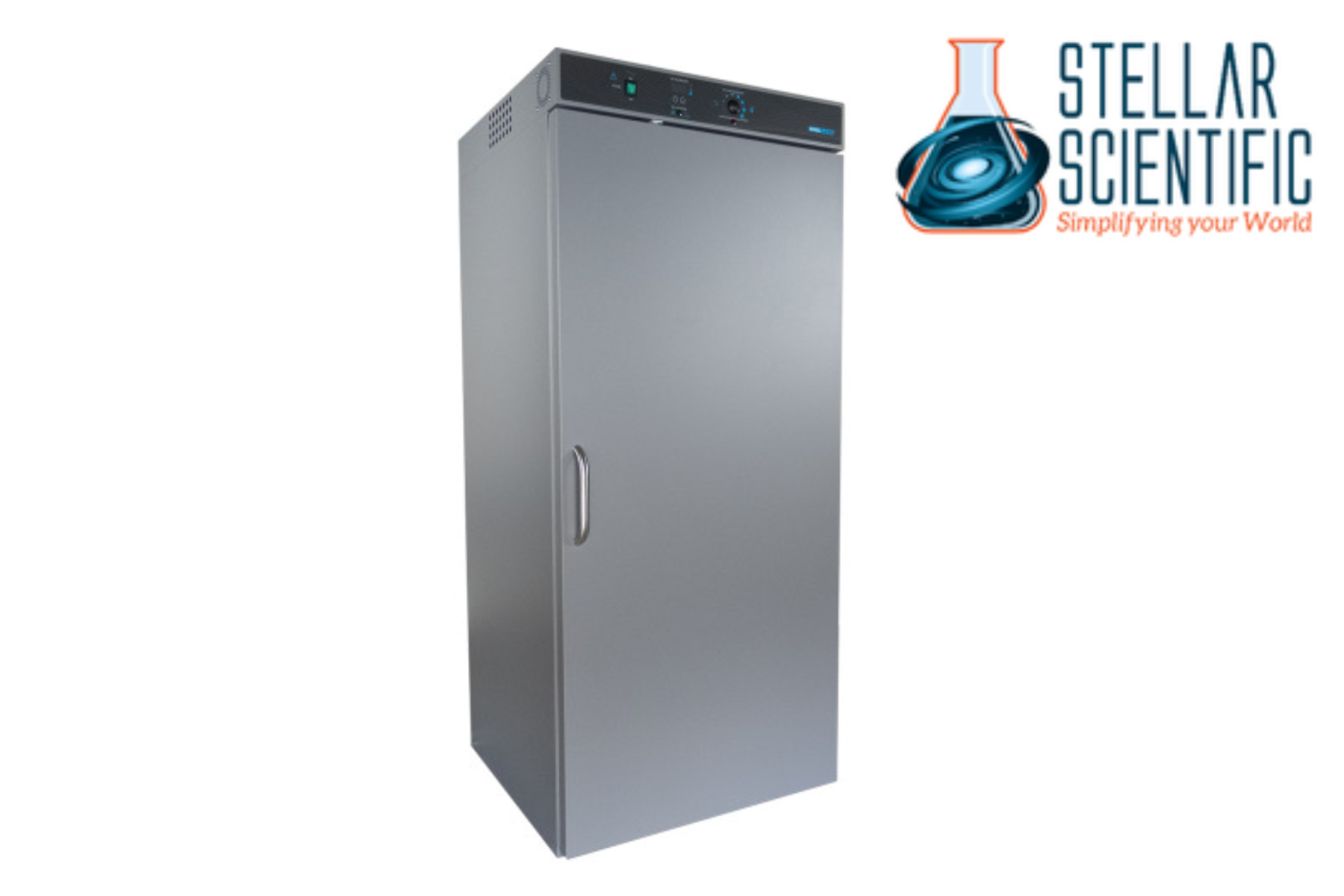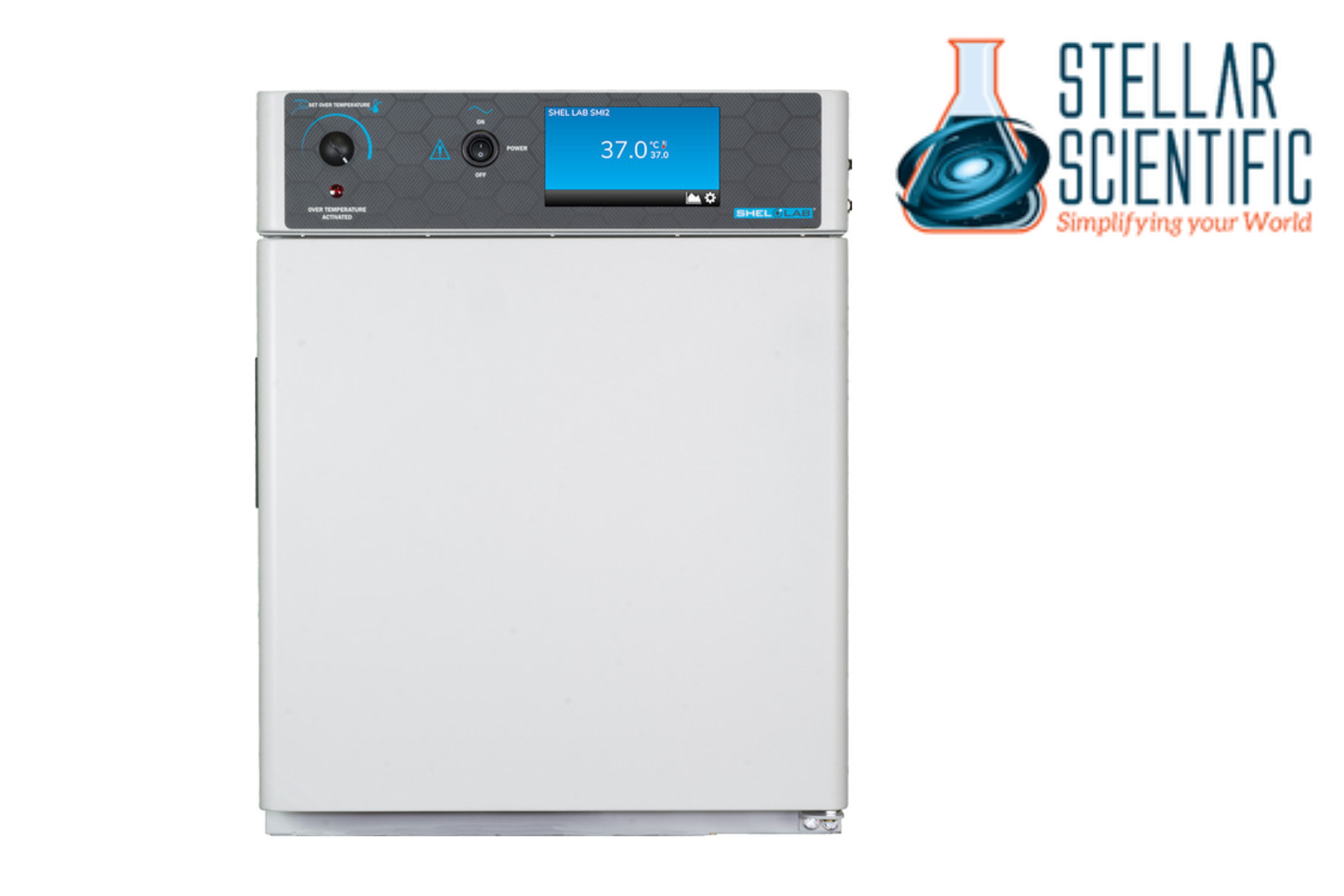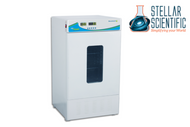Controlled Growth Starts With the Right Laboratory Incubator
25th Jul 2025
In life science research, clinical diagnostics, and industrial testing, laboratory incubators are essential for supporting the controlled growth of cells, bacteria, fungi, and other organisms. From microbial culture development to tissue engineering, the success of an experiment often hinges on the ability to maintain precise environmental conditions.
The right incubator provides a stable, contamination-free space for organisms to thrive. Whether your lab works with bacterial colonies for molecular biology, mammalian cells for vaccine development, or yeast cultures for fermentation, choosing the correct incubator is key to achieving reliable, repeatable results.

What Is a Laboratory Incubator?
A lab incubator is a temperature-controlled chamber used to create optimal conditions for the growth and storage of biological samples. Most incubators regulate temperature, but many also control humidity, CO₂ levels, and airflow depending on the application.
These units come in a variety of sizes and styles, from small benchtop models for light workloads to large, high-capacity incubators for industrial-scale research. Some are designed for general-purpose microbial growth, while others are engineered specifically for sensitive cell cultures or anaerobic environments.
Why Choosing the Right Incubator Matters
Incubators are more than just heated boxes; they are highly engineered systems that ensure the consistency, sterility, and stability required for biological research. An improper environment can slow or stop cell growth, compromise experimental integrity, or even destroy months of work. A well-selected incubator provides the environmental precision necessary for successful outcomes.
1. Temperature Control
Most organisms grow within a narrow temperature range. Lab incubators typically operate between ambient +5°C to 60°C or more, though some specialized models go higher or lower. The ability to maintain stable temperatures, with minimal fluctuations, is critical for biological processes such as enzymatic activity, cell division, and metabolic regulation.
A fluctuation of even 1°C can lead to slower growth rates, altered gene expression, or inconsistent results. High-quality incubators maintain tight temperature uniformity across all internal surfaces.
2. Humidity and CO₂ Regulation
For mammalian cell culture, maintaining the correct relative humidity (RH) and carbon dioxide (CO₂) levels is vital. CO₂ incubators typically maintain 5% CO₂ and 95% RH to replicate physiological conditions. The humidity prevents evaporation and maintains the osmotic balance of cell culture media, while CO₂ regulates the pH through bicarbonate buffering.
These features are especially important for stem cell work, tissue culture, and other delicate applications where even slight deviations can lead to cell stress or death.
3. Airflow and Contamination Control
Microbial contamination is a major risk in any incubation process. Laboratory incubator that feature HEPA filtration, sterilization cycles, or direct heating systems help minimize the introduction or spread of contaminants. Some incubators use natural convection to avoid disturbing lightweight cell cultures, while others utilize forced-air circulation to ensure uniform heat distribution.
4. Application-Specific Designs
Not all incubators serve the same purpose. For example:
- BOD incubators are ideal for biochemical oxygen demand testing in environmental studies.
- Shaking incubators facilitate aerobic microbial growth by agitating cultures.
- CO₂ incubators cater specifically to tissue culture and mammalian cell research.
- Anaerobic chambers provide oxygen-free environments for specific bacterial studies.
Selecting the right incubator design ensures compatibility with your scientific protocols and sample types.
Features to Consider When Choosing an Incubator
There are many incubators available on the market, but the best fit for your lab depends on your research needs. Here are some key features to consider:
Capacity and Size
Choose a model that suits your current sample volume while allowing for growth. Overcrowding can limit airflow and compromise temperature uniformity. Compact benchtop models are ideal for small labs or personal workstations, while larger floor units serve high-volume labs.
Temperature Uniformity and Accuracy
Look for models that provide ±0.1°C or better accuracy, with even distribution across all shelves. Units with digital microprocessor controls typically offer greater precision than analog dials.
Easy-to-Clean Interiors
Smooth, corrosion-resistant stainless steel interiors simplify cleaning and reduce contamination risk. Rounded corners, removable shelving, and minimal seams are all ideal for hygiene and maintenance.
Alarm and Monitoring Systems
For critical experiments, advanced models may include:
- Temperature and CO₂ deviation alarms
- Remote monitoring capabilities
- Data logging for traceability and regulatory compliance
These features provide peace of mind during long-term experiments or after-hours operation.
Energy Efficiency
Modern incubators are designed with energy-saving features like LED displays, low-wattage heating elements, and high-efficiency insulation. This is especially important in labs with continuous operation or multiple incubators running simultaneously.
Common Uses Across Scientific Fields
Laboratory incubators are indispensable in a wide variety of research and production settings:
Microbiology
Used for growing bacterial and fungal cultures for identification, antibiotic testing, and other applications. Consistent temperature and contamination control are critical for reproducible microbial growth.
Molecular Biology
From cloning and transformation to DNA extraction and plasmid amplification, incubators provide the necessary environment for E. coli and other host organisms used in genetic engineering.
Clinical Diagnostics
Incubators support clinical labs in culturing patient samples for diagnostic purposes, including the detection of pathogens and drug susceptibility testing.
Pharmaceutical Research
Used for drug development, quality control, and stability testing. Incubators help simulate biological systems for preclinical testing or formulation refinement.
Tissue and Cell Culture
CO₂ incubators allow for the growth of mammalian cells used in biotechnology, regenerative medicine, and vaccine production.

Best Practices for Optimal Incubator Use
To maintain the performance of your incubator lab and ensure consistent results, follow these operational best practices:
- Do not overcrowd the chamber. Leave space for air circulation around samples.
- Use sterile containers and cultureware to prevent contamination.
- Clean the interior regularly using non-corrosive disinfectants.
- Avoid frequent door opening, which disrupts temperature and gas balance.
- Calibrate sensors regularly to verify accuracy.
- Log environmental conditions during critical experiments for traceability.
Proper care and operation extend the life of your incubator and protect your valuable samples.
Why Investing in a Quality Incubator Pays Off
The success of biological research often depends on consistency and control. A high-performance laboratory incubators offer more than just temperature regulation; it provides a safe, sterile, and optimized space for life to grow. Whether your lab is engaged in pioneering research or routine testing, the right incubator can enhance reproducibility, protect sample integrity, and streamline your workflow.
Poor-quality incubators can result in experimental failure, contamination, and data inconsistency. That’s why choosing a trusted unit, backed by reliable support and robust design, is an investment in your lab’s scientific integrity.
About Stellar Scientific
At Stellar Scientific, we know that precision tools drive reliable science. That’s why we offer a curated selection of laboratory incubators built for accuracy, consistency, and long-term durability. Whether your work involves microbial growth, tissue culture, or temperature-sensitive testing, our incubators are engineered to keep your processes on track.
In addition to incubators, Stellar Scientific provides a broad range of laboratory equipment, consumables, and accessories that support day-to-day research and discovery. From thermal control to sample preparation, every product we offer is chosen to meet the evolving needs of modern science.

